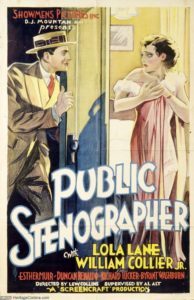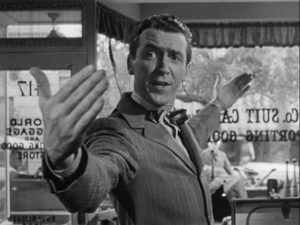 The plaintiff in Ramirez v. Bam! Pizza Management, Inc. obtained a default judgment on a claim for personal injury. The Fifth Court rejected his argument that a new trial should have been granted because of excessively low damages for pain and suffering, noting: [T]he trial judge may have disbelieved Ramirez’s affidavit testimony and that it was within his role as fact-finder to do so and to award no damages to Ramirez for his pain and suffering or physical impairment.” A concurrence would have resolved the appeal against Ramirez because his affidavit was conclusory. No. 05-23-00311-CV (Feb. 22, 2024) (mem. op.).
The plaintiff in Ramirez v. Bam! Pizza Management, Inc. obtained a default judgment on a claim for personal injury. The Fifth Court rejected his argument that a new trial should have been granted because of excessively low damages for pain and suffering, noting: [T]he trial judge may have disbelieved Ramirez’s affidavit testimony and that it was within his role as fact-finder to do so and to award no damages to Ramirez for his pain and suffering or physical impairment.” A concurrence would have resolved the appeal against Ramirez because his affidavit was conclusory. No. 05-23-00311-CV (Feb. 22, 2024) (mem. op.).
Category Archives: Motion for New Trial
 PandaLand sought mandamus relief from the trial court’s grant of a new trial based on application of the Craddock factors. While mandamus jurisdiction has expanded for some types of new-trial grant, the Fifth Court denied relief here, stating: “Mandamus review of a trial court’s order granting a new trial is limited to orders that are void or set aside a jury verdict.” In re Pandaland Holding (HK) Ltd., No. 05-19-01259-CV (Jan. 17, 2020) (mem. op.).
PandaLand sought mandamus relief from the trial court’s grant of a new trial based on application of the Craddock factors. While mandamus jurisdiction has expanded for some types of new-trial grant, the Fifth Court denied relief here, stating: “Mandamus review of a trial court’s order granting a new trial is limited to orders that are void or set aside a jury verdict.” In re Pandaland Holding (HK) Ltd., No. 05-19-01259-CV (Jan. 17, 2020) (mem. op.).
 A trial was held, but after the verdict, a bankruptcy caused several years of inactivity before entry of final judgment in 2015. Unfortunately, in the meantime, a significant part of the reporter’s notes had been lost or destroyed. While Tex. R. App. 34.6 can require a new trial in such a situation if the loss occurs through no fault of the appealing party, the Fifth Court found it did not apply here. In Piotrowski v. Minns, the Texas Supreme Court noted that the applicable Government Code provision “authorizes reporters to cull stale notes from their records after three years when no party has requested otherwise,” whcih means that without a specific request from a litigant, “the litigant is not free from fault if the notes are destroyed as the statute authorizes. 873 S.W.2d 368, 371 (Tex. 1993). The Court found that Piotrowski was good law and controlled here, where no such request had been made in the relevant time period. Geeting v. Dyer, No. 05-16-00128-CV (Nov. 7, 2017) (mem. op.)
A trial was held, but after the verdict, a bankruptcy caused several years of inactivity before entry of final judgment in 2015. Unfortunately, in the meantime, a significant part of the reporter’s notes had been lost or destroyed. While Tex. R. App. 34.6 can require a new trial in such a situation if the loss occurs through no fault of the appealing party, the Fifth Court found it did not apply here. In Piotrowski v. Minns, the Texas Supreme Court noted that the applicable Government Code provision “authorizes reporters to cull stale notes from their records after three years when no party has requested otherwise,” whcih means that without a specific request from a litigant, “the litigant is not free from fault if the notes are destroyed as the statute authorizes. 873 S.W.2d 368, 371 (Tex. 1993). The Court found that Piotrowski was good law and controlled here, where no such request had been made in the relevant time period. Geeting v. Dyer, No. 05-16-00128-CV (Nov. 7, 2017) (mem. op.)
 A new and important issue in Texas procedure has been the amount of detail required of a trial court in granting a motion for new trial. In the case of In re: BCH Development, the Dallas Court of Appeals reversed such an order, carefully laying out the framework for appellate review:
A new and important issue in Texas procedure has been the amount of detail required of a trial court in granting a motion for new trial. In the case of In re: BCH Development, the Dallas Court of Appeals reversed such an order, carefully laying out the framework for appellate review:
- The trial court’s reasons for a new trial must be both sufficiently specific and legally appropriate (satisfied here, where the court identified specific issues involving violation of limine orders, improper jury argument, and evidentiary sufficiency);
- Those reasons must be valid and correct. Here, (a) as to the limine order, the Fifth Court either found no violaton or a cure; (b) no incurably improper jury argument (and thus a waiver when there was not a contemporaneous objection); and (c) sufficient evidence on the issue of attorneys’ fees, noting that the amount awarded by the jury was “well within the range supported by” the testimony.
Accordingly, the Court conditionally granted the requested writ of mandamus. No. 05-16-01481-CV (Aug. 15, 2017).
Abdul Khan had a dispute with a contractor about the design of a stone medallion for the foyer for his new home. The dispute went to trial and the following Q-and-A occurred during examination of a witness for the contractor:
Q. Okay. And did you have a conversation with them about whether or not you could duplicate one of those medallions?
A. Yes, and I repeated that — They — They repeated to me that this was only a design that they were interested in because they did not want cherubims and angels because — what I surmised by that was for religious readons and —
[Khan’s counsel] Objection; relevance.
THE COURT: Sustained.
Khan argued that this exchange was an attempt to appeal to religious prejudice by identifying him as a Muslin. The Fifth Court agreed that the comment was improper, as “[c]ourts in this state have long recognized that a person’s religious beliefs have no place in determining the merits of a dispute,” but found that “[t]his single reference to Khan’s religion was not extreme” as to amount to incurable error. Khan v. The Chai Road, Inc., No. 05-16-00346-CV (July 17, 2017) (mem. op.)
 A famous Shakespeare poem laments: “What win I, if I gain the thing I seek?
A famous Shakespeare poem laments: “What win I, if I gain the thing I seek?
A dream, a breath, a froth of fleeting joy. . . . ” These thoughts could also be the lament of the landlord / appellee in Analytical Technology Consultants v. Axis Capital, who obtained a summary judgment against a tenant in default on a lease. Unfortunately, while the tenant did not respond to the summary judgment motion, it pointed out in a motion for new trial that the landlord had failed to include a credit against the accelerated balance as required by the lease’s remedies provision. The landlord sought to preserve its judgment on appeal by pointing to the evidence it submitted in response to the motion for new trial, which it said included the relevant calculation, but the Fifth Court disagreed: ” An attachment to a motion for new trial is not evidence. To constitute evidence, the attachment must be introduced at the hearing on the motion for new trial. If there is no hearing, then the document never becomes evidence.” (citations omitted). No. 05-16-00281-CV (June 19, 2017) (mem. op.)
In In re: Douglas D. Halofitis, No. 05-16-01047-CV (Sept. 27, 2016) (mem. op.), the Fifth Court gives a helpful roadmap for parties who seek to challenge a judgment of which they were given late notice. We know that trial courts usually lose plenary jurisdiction over a judgment within 30 days after the court signs the judgment, which is also the deadline for filing an appeal. But what if you don’t receive notice of the judgment?
Under Rule 306a, when a party does not receive notice or acquire actual knowledge of judgment within twenty days, the deadlines begin to run not from the signing of the judgment, but instead from the sooner of the date the party received notice or acquired actual knowledge of the judgment or 90 days after the judgment was signed. A few pointers to keep in mind:
- the 306a motion must be sworn and must establish the date of first notice or knowledge of the judgment and that this date was more than 20 days after the judgment was signed;
- the 306a motion, including any evidentiary supplements necessary to satisfy the procedural requirements of 306a(5), must be filed within the court’s plenary period as calculated from the date of first notice or knowledge of the judgment;
- the movant should seek an immediate evidentiary hearing on the 306a motion and obtain a finding of fact of the date of first notice or actual knowledge of the judgment;
- in no event will the periods begin to run more than 90 days after the judgment is signed, meaning that if you receive notice more than 90 days after the judgment is signed, your only avenue may be a restricted appeal or bill of review; and
- the 306a motion should be coupled with a post-judgment motion, e.g. motion for new trial, motion to reinstate, or motion to modify judgment. If you wait for a decision on your 306a motion, your post-judgment motion may end up being untimely even if your Rule 306a motion is successful because post-judgment motions must still be filed within 30 days of the date found to be the date of first notice or actual knowledge of the judgment.
A memorandum opinion setting aside a default judgment highlights one of the more forgiving standards for obtaining a new trial. FelCor/CSS Holdings sued Culinaire of Florida for failing to indemnify it in two personal injury suits. Culinaire received a courtesy copy of the lawsuit and put its insurer on notice. The insurer in turn hired defense counsel. But when the actual citation arrived, Culinaire’s CFO somehow forgot to forward it to the company’s insurance agent. Culinaire moved for a new trial under the familiar Craddock factors, but the trial court denied the motion. The Court of Appeals reversed and remanded, holding that losing paperwork is precisely the kind of “accident or mistake” that negates “conscious indifference” to the lawsuit.
Culinaire of Florida, Inc. v. FelCor/CSS Holdings, LP, No. 05-14-00832-CV
One of the questions appellate lawyers get from time to time is “What’s our deadline to file for mandamus?” The answer is that there is no formal deadline under the rules, but if you wait too long you may end up waiving your right to mandamus. A short opinion from the Dallas Court of Appeals exemplifies the latter principle. On June 6, 2014, the county court at law granted a motion for new trial. On May 27, 2015, a mandamus petition was filed, seeking to require the trial judge to explain its reasons for setting aside the jury verdict and granting a new trial. With the new trial now scheduled for July 8, the Court of Appeals held that the unexplained delay of almost one year to challenge the new trial ruling was too long to justify mandamus relief.
In re Stembridge, No. 05-15-00672-CV
In February and again in March, the Dallas Court of Appeals held that appellate courts will not conduct merits-based review of orders granting a new trial following bench trials. In a very short opinion denying mandamus review, the Court has now extended that holding to orders granting new trial following entry of a default judgment. So unless the Texas Supreme Court weighs in, it appears that the only new trial orders subject to mandamus review under In re Columbia Medical Center will be those that follow jury trials.
In re Klair, No, 05-15-00462-CV
Banco Popular appealed from an agreed final judgment of garnishment for over $900,000 of its account holder’s money. The same day the court signed that agreed judgment, the bank moved for a new trial on grounds that it was not indebted to the account holder after all. The trial court denied the motion for new trial, and the Dallas Court of Appeals affirmed. The Court first held that Craddock factors did not apply because it was an appeal from an agreed judgment instead of a default. The Court also shut down a pair of creative arguments, holding that trial courts are not required to explain their reasons for denying a new trial, and that they are not required to hold an evidentiary hearing before entering an agreed judgment.
Banco Popular N. Am. v. Am. Fund US Invests. LP, No. 05-14-00368-CV
Less than a month ago, the Court of Appeals held that a Motion for New Bench Trial Is Not Mandamus-able. Now the Court has reiterated that holding where a district judge granted a new new trial after the case had originally been tried to an assigned judge. The Court relied in part on Justice O’Neill’s dissent in In re Columbia Medical Center, which argued that in the situation of a short bench trial, the benefits of a prompt retrial outweigh the detriments of prolonging the case with interlocutory review.
If motions for new bench trial are becoming a thing, we’ll keep an eye on the Supreme Court to see whether it wants to weigh in.
In re Dixon, No. 05-15-00242
Since In re Columbia Medical Center, 290 S.W.3d 204 (Tex. 2009), trial courts have been required to specify their reasons for granting a new trial, and the failure to do so has been subject to appellate review by way of mandamus. In a very short opinion arising out of a divorce case, the Dallas Court of Appeals has recognized a notable exception to that rule. When the trial has been to the court instead of a jury, the concerns about transparency in setting aside a jury verdict are not present. Thus, a trial court does not abuse its discretion in granting a new trial without explanation following a bench trial.
In re Foster, No. 05-15-00179-CV
In this bill of review concerning an eviction for unpaid rent, the Court of Appeals found, among other things, that the trial court did not abuse its discretion by not holding a hearing on a motion for new trial. The Court explained that “a trial court is required to conduct a hearing on a motion for new trial only when the motion presents a question of fact upon which evidence must be heard.”
The Court of Appeals has granted mandamus relief to direct a Collin County trial court to vacate its order granting a new trial for the plaintiff in a product liability suit. The district court granted the motion based on both factual sufficiency and juror misconduct grounds. The Court of Appeals held that the new trial order could not be sustained on the basis of juror misconduct because the lower court had not conducted an evidentiary hearing — affidavits attached to the motion alone were not sufficient under Rule 327. The Court also concluded that the jury’s verdict for the defense was not contrary to the great weight and preponderance of the evidence, as conflicting testimony from the parties’ design experts adequately supported the jury’s decision that the medical implant at issue was not defective.
In re Zimmer, Inc., No. 05-14-00940-CV
A fire at a hotel in Duncanville left the property owner unable to continue paying on the $3.4 million promissory note. The lender foreclosed and the property was sold for $500,000, leaving a substantial balance on the defendants’ personal guaranty obligations. The bank prevailed on summary judgment, a result that was not helped by the failure of defendants’ counsel to respond to the motion or appear at the hearing. The Court of Appeals affirmed.
The guarantors challenged the trial court’s denial of their motion for new trial. The Court of Appeals analyzed the case as a post-answer default, applying the Craddock factors of whether (1) the failure to answer or appear was a mistake or accident, (2) the defendant had a meritorious defense, and (3) the motion was filed at a time when granting a new trial would not delay or otherwise injure the plaintiff. In this instance, the motion for new trial failed to establish item (3), as the attorney’s affidavit did not address that factor, Neither the motion nor the affidavit stated that the defendants were ready, willing, or able to go to trial immediately or offer to reimburse the plaintiff for its expenses. The Court also rejected the defendants’ claim of newly-discovered evidence, given that the affidavits failed to establish the proffered evidence (testimony from friends of the defendants) was actually newly discovered or could not have been discovered earlier through the exercise of due diligence.
Kahrobaie v. Wilshire State Bank, No. 05-13-01459-CV
In this attorney malpractice case, a client sued his lawyer for malpractice and a number of other related causes of action. The parties settled the case at mediation and signed a settlement agreement requiring the lawyer to sign an agreed judgment to secure payment of the settlement amount. The client’s attorney prepared the agreed judgment and sent it to the lawyer’s attorney, but, after several attempts, never received a response. As a result, the trial court re-opened the case (which had been dismissed due to the settlement), set it for a bench trial, and sent notice of the trial setting to both parties.
At the bench trial, neither the lawyer nor his attorney showed up, and the trial court awarded the client damages in an amount that was more than three times the amount of the settlement. The lawyer then filed a motion for a new trial. His attorney acknowledged, however, that he had received notice of the trial but ignored it because he thought that it was an “erroneous” notice since the case had settled. The trial court found this excuse insufficient and denied the motion. On appeal, the Court of Appeals agreed, and, although it reversed some of the damages awarded to the client, held that it was within the trial court’s discretion to conclude that the lawyer and his attorney “failed to appear for trial as the result of intentional conduct or conscious indifference.”
McLeod v. Gyr, No. CC-11-02708-B
It’s not a Dallas Court of Appeals case, but the Texas Supreme Court this morning issued an opinion further limiting a trial court’s discretion to grant a new trial. The Supreme Court had previously required trial courts to issue written explanations of their reasons for granting a motion for new trial. In re Columbia Med. Ctr. of Las Colinas, Subsidiary, L.P., 290 S.W.3d 204 (Tex. 2009). Now, the court has held that if the record does not support the trial court’s explanation, the appellate courts may grant mandamus relief and order the trial court to render judgment on the jury’s verdict.
In re Toyota Motor Sales, U.S.A., Inc., No. 10-0933
Sullivan purchased a commercial cleaning franchise from Jani-King. The parties ended up in two disputes that were resolved through a single settlement agreement in 2004. The settlement agreement required Sullivan to “immediately and permanently cease operation” of his competing business, and Jani-King to offer Sullivan a certain amount of accounts within the next 12 months. The franchise agreement remained in full force and effect. In 2005, Jani-King sued Sullivan for breach of the franchise and settlement agreements, alleging that Sullivan continued to operate his competing business and failed to pay Jani-King royalty and advertising fees in compliance with the franchise agreement. The jury found in favor of Jani-King and Sullivan appealed.
Among other issues, Sullivan challenged the factual sufficiency of the jury’s findings. The court of appeals found that Sullivan’s factual sufficiency complaints were not preserved for review because Sullivan failed to file a motion for new trial. The court rejected Sullivan’s claim that his motion to disregard the jury’s findings or for judgment notwithstanding the verdict sufficed as a motion for new trial because those motions did not ask the trial court to vacate the judgment and order a new trial. The court of appeals also found that Jani-King’s failure to provide Sullivan with accounts was excused by Sullivan’s prior breach of the settlement agreement through his failure to immediately cease operation of his competing business. The court of appeals affirmed the trial court’s judgment.
Sullivan v. Jani-King of NY, Inc., No. 05-11-01546-CV
UES sued Four D for failing to pay its invoices. In support of its motion for summary judgment, UES attached an affidavit that established the amount due. The trial court granted summary judgment in favor of UES, and Four D appealed. Four D argued that fact issues exist on the amount owed on the account. The court of appeals rejected UES’s argument that the affidavit could not support the summary judgment motion because it failed to meet the requirements of an interested witness affidavit. The court found that UES waived this argument because it failed to obtain a ruling on its objection. “Reasserting” the objection in UES’s motion for a new trial, which was subsequently overruled by operation of law, did not preserve the error. However, the court agreed with Four D that invoices attached to the affidavit that were stamped “PAID” raised a fact issue as to the amount owed. The court of appeals reversed and remanded.
Four D Construction v. Utility & Environmental Services, No. 05-12-00068-CV
Duffy McKenzie sued Christopher Utz and several of Utz’s companies, seeking to recover unpaid wages. The defendants did not answer, and McKenzie obtained a default judgment against them for approximately $34,000. Thirty days later, the defendants filed a motion for new trial, seeking to set aside the judgment under the familiar Craddock standards. McKenzie opposed the motion, eliciting testimony at the hearing that Utz had simply put the lawsuit in his drawer because did not want to deal with it. The trial court denied the motion for new trial, and the court of appeals affirmed. Although the court noted the defendants’ evidence that they had not answered because they thought the parties were trying to settle the lawsuit, the conflict between that evidence and the testimony during the hearing was sufficient basis for the trial court to have found that the failure to appear was intentional or the result of conscious indifference. When the evidence conflicts, the court held, the trial court was not required to accept the movant’s version of events. The court of appeals also ruled against the defendants on a motion for sanctions, holding that various alleged misstatements in McKenzie’s appellate brief were insufficient to support any sanctions.
Utz v. McKenzie, No. 05-11-01647-CV
On the eve of trial, the district court granted a motion to withdraw filed by the attorneys for L’Arte de la Mode, Inc., but denied the company’s request for a continuance because it was the client’s fault they had not been paying their bills. The case was called to trial, but nobody appeared for L’Arte. The trial court therefore granted a default judgment for Neiman Marcus, awarding it more than $150,000 in compensatory damages and twice that amount for exemplary damages, all attributable to Neiman’s claim for money had and received. L’Arte retained substitute counsel, but the trial court denied the company’s motion for new trial. The court of appeals reversed, holding that L’Arte had established all of the elements for a new trial.
The court of appeals analyzed the case under the venerable standards of Craddock v. Sunshine Bus Lines, Inc., 133 S.W.2d 124 (Tex. 1939), which requires the movant to establish that (1) the failure to appear was not intentional or the result of conscious indifference, but was the result of an accident or mistake, (2) the movant has a meritorious defense, and (3) granting the motion will occasion no delay or otherwise injure the plaintiff. L’Arte established the first element through the affidavit of its in-house counsel, who stated that L’Arte had not received either the attorneys’ motion to withdraw or the order granting the withdrawal. L’Arte also established that it had a meritorious defense through its contention that Wells Fargo actually holds Neiman’s money, thanks to its factoring arrangement with L’Arte. Finally, the court of appeals held that L’Arte had satisfactorily assured that a new trial would not injure Neiman Marcus by agreeing to pay its attorney fees incurred in obtaining the default judgment, despite Neiman’s objection that the promise was hollow in light of L’Arte’s inability to pay its own attorneys and its failure to post a bond to supersede the existing judgment. The court of appeals therefore reversed the default and remanded to the district court for a trial on the merits.
L’Arte de la Mode, Inc. v. Neiman Marcus Group, No. 05-11-01440-CV
It was a landmark decision when the Texas Supreme Court decided that trial courts had to explain their reasoning for granting a new trial, and that the failure to do so was reviewable by mandamus. In re Columbia Med. Ctr., 290 S.W.3d 204 (Tex. 2009). Four years later, the correction of such omissions has become a more or less routine part of the job for Texas appellate courts. In this case, the trial court ordered a new trial on the real party in interest’s attorney fees “in light of a verdict in its favor.” Because there was no further explanation in the order granting the new trial, the court of appeals issued a short memorandum opinion ordering the trial court to more fully explain its reasoning. However, the court also denied the relator’s request that the court of appeals enter judgment on the jury verdict, thereby preserving the decision on a new trial for the district court.
In re Whaley, No. 05-12-01518-CV
In a memorandum opinion, the court affirmed a trial court’s judgment in a declaratory action regarding the validity of a warranty deed. Knight brought the underlying action to declare the deed, which evidenced the transfer of his ownership in property to Minter, a forgery. The trial court concluded that Knight had indeed signed the deed transferring ownership of the Property to Minter. On appeal, Knight argued that the trial court erred by denying his motion for new trial based on “newly discovered evidence,” including evidence that the notary who witnessed Minter’s warranty deed had been indicted for fraud and entered a plea agreement, as well as the affidavit of a mortgage loan underwriter stating the transaction required a sales contract. The court rejected Knight’s argument because he failed to establish that he lacked actual knowledge of the notary’s criminal history and exercised appropriate diligence before trial in relation to the expert testimony he obtained after trial.
Knight v. Minter, No. 05-11-00829-CV

